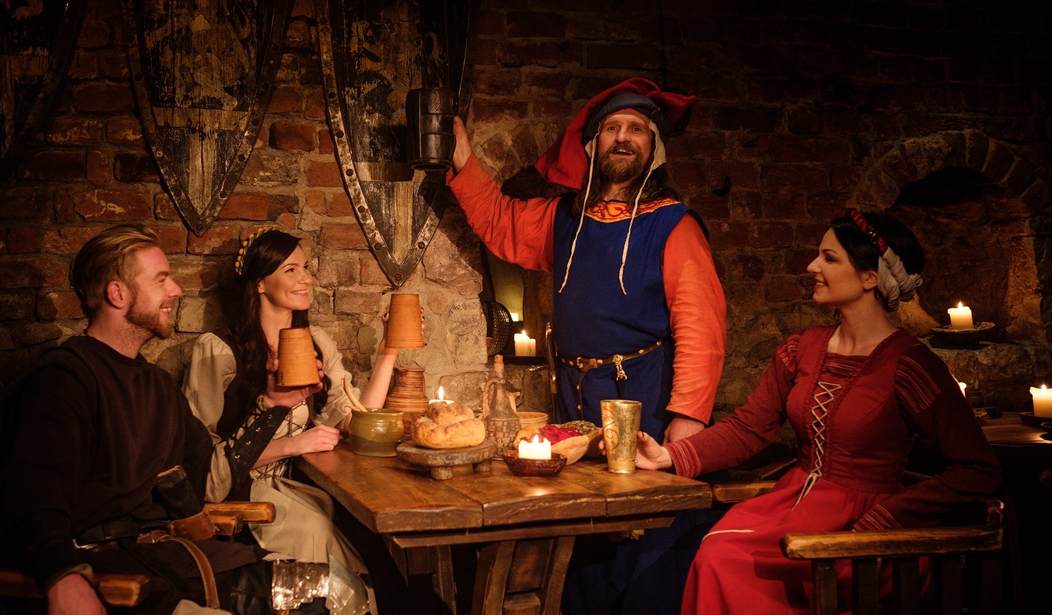Friday, April 7, is National Beer Day, so it is a fitting time to reflect on beer’s powerful impact over the course of history. Not only was beer one of the first alcoholic drinks (making water safer to consume), but its use as a ration among the earliest civilizations in Egypt and Mesopotamia played a huge role in the creation of writing.
The history of beer, as that of human civilization, begins in Sumer, that is ancient Mesopotamia (roughly modern Iraq). The world’s first great literary work, The Epic of Gilgamesh, describes beer as one of the things that makes people human. In that story, Gilgamesh has adventures with Enkidu, who starts off as a wild man running naked in the wilderness. But Enkidu is introduced to civilization by a woman.
They placed food in front of him, they placed beer in front of him. Enkidu knew nothing about eating bread for food and of drinking beer he had not been taught. The young woman spoke to Enkidu saying, “Eat the food, Enkidu, it is the way one lives. Drink the beer, it is the custom of the land.”
Enkidu ate the food until he was sated. He drank the beer, seven jugs, and became expansive, and sang with joy. He was elated and his face glowed. He splashed his shaggy body with water and rubbed himself with oil, and turned into a human.
This correlation of beer with humanity seems farfetched today, but Tom Standage, author of A History of the World in 6 Glasses, suggested that the need to provide a stable supply of bread and beer gave impetus to the first farmers, and may have helped humans transition from hunter gatherers to a sedentary farming lifestyle.
Indeed, “the Mesopotamians regarded the consumption of bread and beer as one of the things that distinguished them from the savages and made them fully human,” Standage explained. His book suggests they might have actually been right.
Importantly, the regulation of bread and beer enabled Mesopotamia’s first cities, and gave birth to writing itself.
“Grain was a sort of edible money, and it was consumed in both solid and liquid forms, as bread and beer,” Standage explained. “Mesopotamians and Egyptians alike saw beer as an ancient, god-given drink that underpinned their existence, formed part of their cultural and religious identity, and had great social importance.”
In both cultures, “beer was a staple foodstuff, without which no meal was complete,” and everyone in the society enjoyed it, “from the top of the social pyramid to the bottom.”
Especially in Mesopotamia, rations of bread and beer enabled the priests to regulate the economy, encouraging workers to dig canals and set up the elaborate irrigation system which farming in Mesopotamia required. But the priests needed a system to record what had been handed out and taken in.
While the earliest accounting was done using small tokens signifying various goods, “it soon became clear, however, that an easier way to achieve the same result was to use a tablet of wet clay, and to press the tokens into it to make different shaped impressions signifying barley, cattle, and so on.” These clay tablets were baked in the sun to make impressions permanent.
“Gradually, tokens were abandoned altogether in favor of pictograms scratched in the clay,” Standage explained. Indeed, “the oldest written documents, dating from around 3400 BCE from the city of Uruk, are small flat tablets of clay that fit comfortably into the palm of one hand.”
Among these tablets, the pictogram for beer “appears in wage lists, in administrative documents, and in word lists written by scribes in training, which include dozens of brewing terms.”
Because the brewing process is described, albeit cryptically, in these earliest written documents, Standage argued that “the world’s oldest written recipe is for beer.”
Beer at the time was very primitive — it was drunk through a straw because the fermentation process left a great deal of inedible things in the mixture. Much to the chagrin of IPA fans, it was not made with hops, which was discovered much later. And the idea of adding citrus or other flavors to beer likely came much later — after lemon juice was added to rum to produce grog on English ships.
But no matter its form, beer has been with mankind since the very dawn of civilization. It may have encouraged the founding of the first cities, and it helped inspire the invention of writing. (It also played a large role in the history of America’s founding.)
Beer has been seen as the drink of the honest working man for millennia, and it has played a role in almost every human culture. So raise a glass, sing a song, and enjoy this monumental beverage!








Join the conversation as a VIP Member